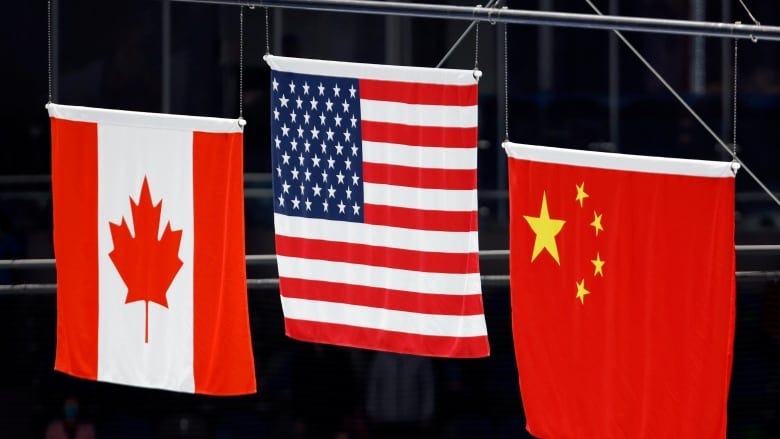Does The Maple Leaf Still Matter?
The Sino-American rivalry threatens to exacerbate an already unstable global political order. Such has brought to question the core tenets of middle power diplomacy and multilateralism.
By Jack Burnham
THE OPENING SHOTS of the last Cold war were fired nearly 80 years ago amidst the ruins of Berlin. The opening shots of the new one may well have been fired nearly eight months ago, when Vladimir Putin began his invasion of Ukraine after a summit with Xi Jinping in Beijing.
The Sino-American rivalry will have a profound effect on the international system, from fracturing multilateral forums to raising the prospect of great power war. It will also limit the influence of Canada’s diplomatic efforts as a middle power by heightening the desire of the United States to maximize its political authority within the international system, at the expense of the liberal order.
In contrast to the tendency of great powers to act alone on the global stage, the influence of middle power diplomacy is rooted in the structure of the rules-based order. Rather than relying on overwhelming military strength or industrial capacity, middle powers such as Canada pursue much of their foreign policy through their involvement in multilateral forums such as the United Nations, which prioritize consensus-building over the capability to project power. Combined with Canada’s sustained investment in its diplomatic corps, this style of negotiation allows for Ottawa to effectively advocate for its national interests, despite its relatively limited influence on the world stage.
However, this multilateral order has been eroded by a growing series of confrontations between a rising Beijing and a Washington in relative decline. Over the past two decades, China has enjoyed a profound period of economic growth, becoming the world’s second largest economy. The nation has also been fortifying its military strength in the Pacific and now boasts the largest military in the world. Throughout, China has been expanding its leadership portfolio not only regionally, but globally.
These developments have left the United States increasingly concerned over the potential consequences of China’s rise. Beginning with the Obama administration’s “pivot to Asia” in 2011, the US has sought to limit cooperation with Beijing in favour of greater competition, from launching trade wars to reshoring the production of semiconductors.
This aggressive posture, prompted by its fear of losing its hegemonic status and relative advantages within the international system, has eroded the US’ interest in multilateralism as it pursues its own strategic interests in an increasingly tense global landscape. Rather than seeking to expand its influence through multilateral negotiations as in the past, the US’ foremost foreign policy concern now is to counter China’s rise, whether through bolstering its own economic strength or slowing Beijing’s growth. Consequently, the influence of multilateral institutions and the rules-based order they represent has been deteriorating, blunting the effectiveness of middle power diplomacy for countries like Canada that have traditionally relied on these institutions to assert themselves in the global arena.
This geopolitical calculation has underpinned much of recent US behavior not only to China but to its partners more generally, including Canada. From imposing national security tariffs on Canadian steel and aluminum, to promoting “Buy American” campaigns, to renegotiating NAFTA, both the Biden and Trump administrations have championed varying degrees of economic nationalism to attempt to limit China’s access to North American markets. These decisions reflect Washington’s desire to maximize its gains by increasing its exploitation of the relative power differentials between itself and its partners, demonstrating the limits of middle power diplomacy in an era of great power competition that will only deteriorate further as the Sino-American geopolitical rivalry intensifies.
Nonetheless, although the US interest in multilateralism appears to have declined, Canada’s diplomatic efforts may still be relevant in an international system dominated by a Sino-American dyad. While the US may be concerned solely with augmenting its power in absolute terms, Canada’s ability to offer Washington greater access to its markets and support in strengthening regulatory regimes may be a source of leverage in future negotiations. Further, Canada’s tendency to specialize in diplomatic niches such as arms control may offer it a comparative advantage within certain segments of the global political economy, bolstering its value amidst a splintering global order.
However, this relevance is contingent upon the degree of alignment between the interests of middle and great powers. While middle power diplomacy may be pertinent within multilateral settings convivial to great powers, this relationship of dependence will inherently dictate its efficacy. Rather than playing a “two-level” game to balance the demands of both domestic constituencies and other countries, Canada is now effectively engaged in a three-level game as great powers attempt to maximize their gains relative to one another by continuously shifting the landscape of both boards, constraining Ottawa’s influence on the global stage.
The Sino-American rivalry will dramatically reshape the international system and its institutions much as the Cold War redrew the globe after the end of the second World War. Beyond realigning national interests to explicitly favour power maximization, this enmity will also realign traditional multilateral forums, leaving Ottawa to navigate between two increasingly belligerent superpowers. For now, Canada must hope that the US decides to continue playing the game rather than quit it entirely.
Jack Burnham is a candidate in the Masters of Public Policy program with the Max Bell School at McGill University. He has an interest in international defence and security and hopes to continue with his research into power transitions within the international system and great power competition.


